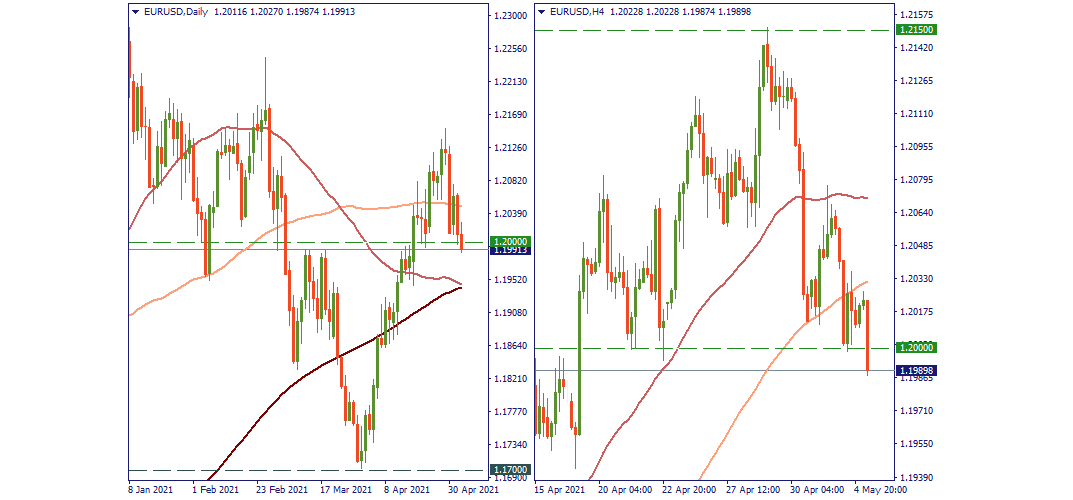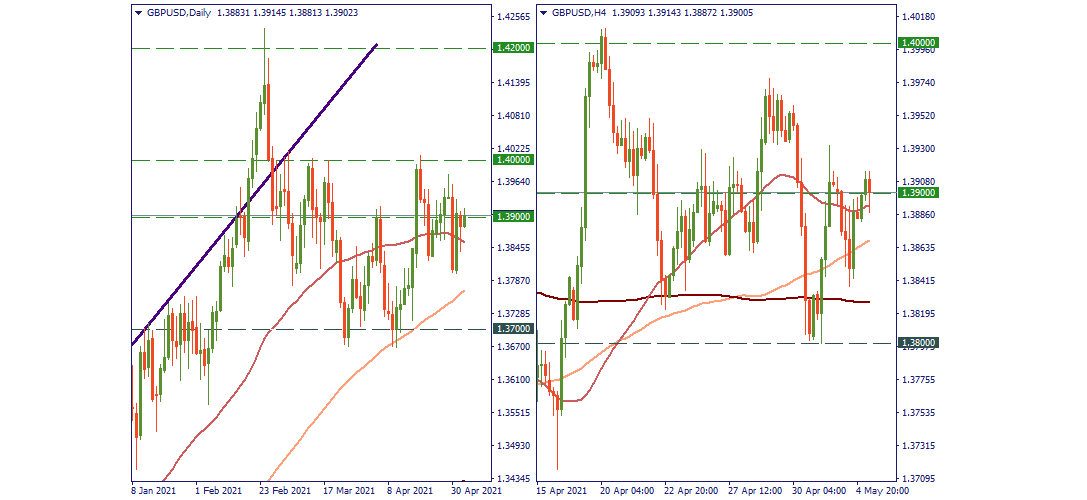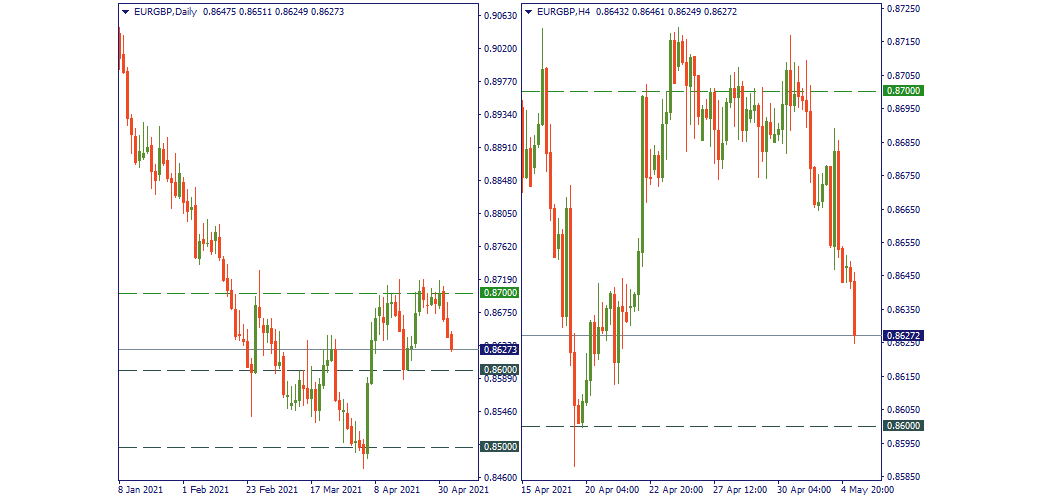Trading Accounts
Trading Conditions
Financials
CFD Trading instruments

Don’t waste your time – keep track of how NFP affects the US dollar!
The ASIC policy prohibits us from providing services to clients in your region. Are you already registered with FBS and want to continue working in your Personal area?
Personal areaAt the beginning of the virus hit, EUR/USD was in the zone of 1.10. By the end of 2020, it rose to 1.2350. Since then, it’s been going mostly downwards as the USD is gaining momentum with the recovering US economy. Currently, it trades around 1.20, and if the US economic optimism stays for another month or two, we are likely to see the pair challenge the tactical supports of 1.17 and 1.16.

From the depths of 1.20 at the beginning of the pandemic, this pair has been going upwards almost in a straight line to reach 1.42 in February. Since then, it dropped some of the gains and has been floating below 1.40. Pound’s offensive may have stopped due to the accumulating effect of Brexit as the UK is seeing a lower financial dynamic than before. Locally, 1.38 and 1.37 are the supports bears may be aiming at. If these get broken in the coming weeks, it may be a start of a whole new multimonth downswing back to 1.20.

While this pair dropped to 0.83 in the first part of 2020, it has been trading around 0.90 in the second part. However, it ceded most of the gains during previous months going down to 0.85 in April. That level turned out to be a tactical low that sent the currency pair into the upside. EUR/USD bounced off that level a month ago to reach 0.87 – this is the current resistance level. Currently, the pair is on the way downwards after bouncing off it a few days ago. If bears keep pulling, it may reach 0.86 and aim at 0.85 once again. In the larger perspective, the behavior of EUR/GBP in the coming weeks will indicate if it is going to re-take the gains made through 2020 or go further downwards to the five-year lows of 0.83.
